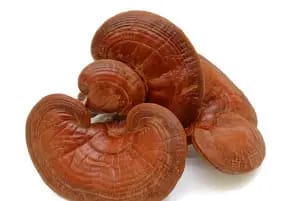
REISHI MUSHROOMS
What is Reishi? Reishi, also known as Ganoderma lucidum, is a type of mushroom that has been used for centuries in traditional Chinese medicine. It is highly regarded for its potential health benefits and is often referred to as the “mushroom of immortality” due to its purported medicinal properties
Health Benefits Reishi mushrooms are believed to offer a wide array of potential health benefits. They are often touted for their immune-boosting properties and may also have anti-inflammatory and antioxidant effects. Additionally, reishi has been associated with potential benefits for heart health, blood sugar regulation, and stress reduction.
Active Compounds The health-promoting properties of reishi mushrooms are attributed to their bioactive compounds, including triterpenes, polysaccharides, and other unique substances. These compounds are believed to contribute to the immunomodulatory and antioxidant effects of the fungus
Vitamins in Reishi: Reishi is a natural source of several important vitamins. Contains B complex vitamins, including B2 (riboflavin), B3 (niacin), B6 (pyridoxine) and B9 (folic acid). These vitamins play a crucial role in energy metabolism, nerve function, and cardiovascular health. Additionally, Reishi also contains vitamin C, a key antioxidant that supports the immune system and skin health
Minerals in Reishi: In terms of minerals, Reishi is a good source of several essential nutrients. Contains potassium, a mineral important for muscle function and blood pressure regulation. Additionally, Reishi provides significant amounts of calcium, iron and zinc. Calcium is crucial for bone health, iron is necessary for oxygen transport in the body, and zinc is vital for the immune system and wound healing
In short, Reishi is a natural source of B vitamins, vitamin C and several important minerals such as potassium, calcium, iron and zinc.
Forms of Consumption Reishi can be consumed in various forms, including as a dietary supplement in the form of capsules, powders, or extracts. It can also be brewed into teas or incorporated into soups and other culinary preparations